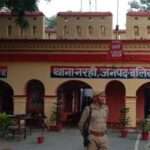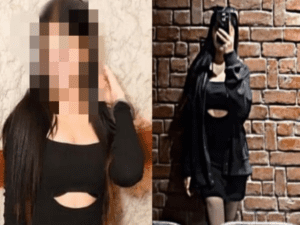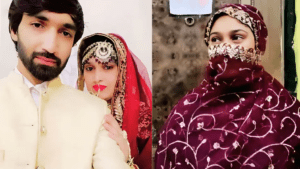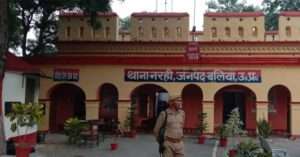Having spent her entire life in Alabama, Lishea Jones finds herself questioning everything since the state’s highest court declared embryos legally as children last week. The impact has been particularly profound for Jones and other lesbian couples, as three major fertility clinics in the state have suspended in vitro fertilization procedures due to potential legal liabilities.

For Jones, aged 34, and her 41-year-old wife, Paige, who reside in Alabaster with their 4-year-old son, Fendley, the ruling has significant implications. Fendley was conceived through IVF in 2020, and the couple had frozen three more embryos with the hope of expanding their family in the future. Despite assertions that the issue is not political, Jones and others argue that advocating for IVF protections is essential, emphasizing that these procedures play a crucial role in enabling families to have children. Jones recently participated in a rally outside Alabama’s State House to voice support for safeguarding IVF rights.
In a recent statement, Katherine Robertson, the chief counsel for Alabama Attorney General Steve Marshall, declared that Marshall “has no intention of using the recent Alabama Supreme Court decision as a basis for prosecuting IVF families or providers.” Despite this assurance, Katherine Jones, one of the affected individuals, expressed skepticism, stating, “I don’t trust that.”
The lack of reassurance intensified when, just one day after the attorney general’s statement, an explosive device detonated outside Marshall’s office. Fortunately, no injuries were reported, but Alabama authorities took swift action by releasing a video of the suspect on Wednesday in an attempt to identify them. The incident adds a layer of uncertainty and concern to an already tense situation surrounding the recent legal developments affecting IVF procedures in the state.
The events of the past week have left many same-sex couples feeling deeply unsettled. While in vitro fertilization (IVF) and other assisted reproductive technologies are utilized by a broad spectrum of individuals, same-sex couples, seeking to conceive biologically, rely on these procedures more than their heterosexual counterparts.
Mary Ziegler, a professor at the University of California Davis School of Law specializing in the history and politics of reproductive rights, pointed out, “Making IVF services off-limits or of uncertain legality disproportionately affects LGBTQ parents.”
For individuals like Jones, the IVF journey, encompassing sperm, medications, and the egg retrieval procedure, incurred a substantial cost exceeding $25,000 and took a toll on her both mentally and physically. Despite the challenges, she acknowledged, “It was the only way to have kids.”
Given the legal uncertainties in Alabama, Jones has contemplated moving the embryos out of state. However, she is apprehensive about potential legal repercussions, expressing concern: “Could I get in trouble if I try to move them?” Jones remains determined to relocate the embryos as soon as possible, prioritizing the well-being of her family amidst the evolving legal landscape.
Polly Crozier, the director of family advocacy for GLAD, an LGBTQ legal rights group, emphasized that the Alabama Supreme Court’s recent ruling adds to the existing challenges confronting LGBTQ parents in the state. Crozier noted the difficulty in safeguarding legal parent-child relationships, even after children are born, creating an environment that instills fear among LGBTQ individuals.

She pointed out, “This IVF case is obviously a very clear sign that the anti-abortion movement really has its sights set much broader than abortion.” Crozier explained that some activists envision the only legitimate family structure as one comprising a mother and a father who have biologically created their children through sexual intercourse.
In response to the ruling, the state House and Senate passed bills on Thursday aiming to provide legal protections for IVF providers and patients. However, critics argue that these bills do not address the fundamental issue raised by the Supreme Court ruling—whether an embryo created via IVF should be considered a child under state law.
For individuals like Caroline Veazey, aged 30, who froze six embryos after a successful round of IVF last summer, the urgency to navigate the legal landscape prompted action. Faced with the Supreme Court decision, Veazey initiated a GoFundMe campaign and actively sought ways to transport her embryos out of state, illustrating the unanticipated challenges that LGBTQ individuals are grappling with in light of the recent legal developments in Alabama.
For Caroline Veazey, the prospect of becoming a mother is a cherished dream. Identifying as a lesbian, she expressed her determination to undergo IVF at some point, with or without a partner. Veazey, a licensed counselor with a challenging relationship with her unaccepting mother, envisions providing complete acceptance and support to her future child, stating, “That is my goal. It’s what I’ve always wanted.”
Despite the apparent solution of moving the embryos to a storage facility near Woodstock, Veazey remains uncertain about the safety of that option. Concerned about the political climate in Georgia, she expressed the need to transport the embryos to a state she deems safer. Recently, she signed paperwork relinquishing her IVF clinic’s liability, allowing the release of the frozen embryos to a company that will transport them to a storage facility in Washington state.

Former state Rep. Patricia Todd, the first openly gay lawmaker elected to the Alabama Legislature in 2006, expressed her concerns about the state’s future. Todd, currently engaged in LGBTQ advocacy, believes that many younger same-sex couples might consider leaving Alabama due to its perceived regressive stance.
Elishea Jones, who fought hard to have her son through IVF, reluctantly contemplates the idea of moving. However, she faces emotional challenges, struggling to find a suitable location that balances climate, proximity to family, and the difficult task of explaining the situation to her son in the future. Despite the uncertainties, Jones is determined to protect her family, stating, “I’ll fight for him. If s— goes down, we’re gone. I’ll protect his embryo-siblings.”










More Stories
Vice President Kamala Harris met with Prime Minister Benjamin Netanyahu at the White House
Kamala Harris is set to make an appearance on the season finale of RuPaul Drag Race All Stars
Prince Harry says conflicts with the British press contributed to his rift with the royal family